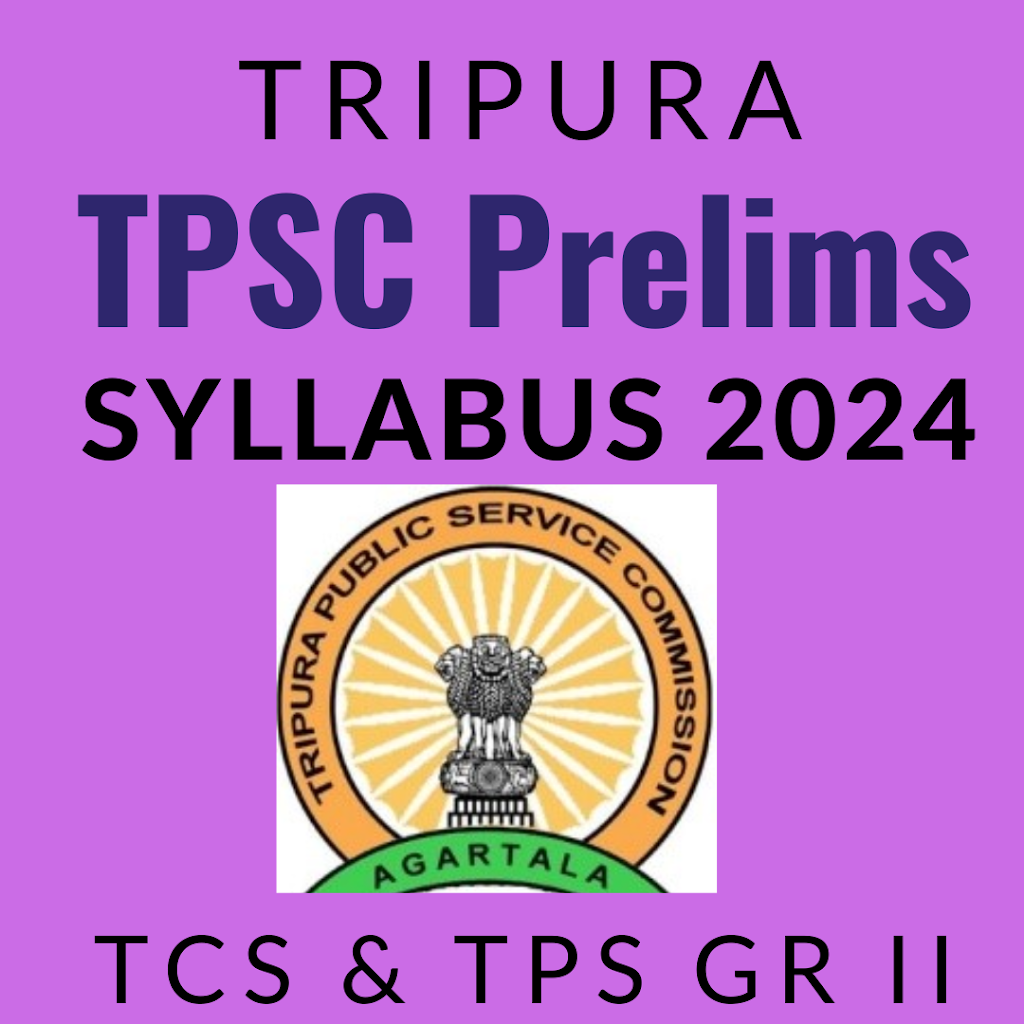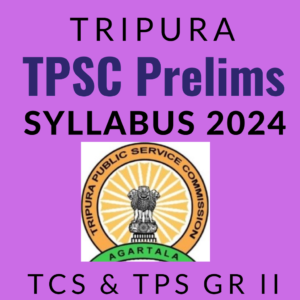Overview of Tripura TPSC Exam 2024-25
The TPSC Prelims exam is objective-type, consisting of 200 marks, and lasts for 2.5 hours. Successful candidates from the Prelims stage proceed to the TPSC Mains exam, which is a conventional essay exam with a total of 8 papers, including 3 optional papers
The Tripura Public Service Commission (TPSC) conducts exams for the recruitment of civil servants in Tripura, specifically for positions under the Tripura Civil Service (TCS), Grade-II, and Tripura Police Service (TPS). The preliminary exam serves as a gateway, filtering eligible candidates for the main examination. It’s important to understand the structure, syllabus, and key requirements to successfully navigate this competitive exam.
Significance of TCS, Gr-II & TPS Exams
These exams are pivotal for aspirants aiming to join Tripura’s administrative or police services. Passing the TPSC examination opens up opportunities for individuals to play an integral role in governance, policymaking, and public administration. Success in this exam demands not only thorough knowledge but also a strategic approach towards study and exam execution.
Structure of the TPSC Preliminary Examination
The preliminary exam consists of a single paper in General Studies, comprising 200 marks. It includes questions on a wide array of subjects, such as English, Math, Reasoning, History, Geography, Polity, Economy, Science, and Current Affairs. The syllabus’s diversity requires candidates to be well-rounded, with a clear understanding of each subject.
Detailed TPSC Syllabus Breakdown
General Studies Paper I – Overview
The General Studies paper encompasses multiple subjects, designed to test a candidate’s awareness of national and international issues, along with foundational knowledge in various academic disciplines.
History of India and Indian National Movement
This section includes questions that assess the aspirant’s knowledge of India’s historical timeline, major movements, and the country’s fight for independence. Understanding the contributions of key historical figures and pivotal moments is crucial for this part. Geography of Tripura and NE Region is also included.
Geography of India and the World
The syllabus covers both physical and human geography, emphasizing India’s geographical aspects. Aspirants should focus on topics like rivers, mountains, climate, and the economic geography of the country.
Indian Polity and Governance
This section emphasizes the Constitution of India, political system, Panchayati Raj, and governance. Familiarity with the fundamental rights, duties, and directive principles, as well as the structure of the executive, legislature, and judiciary, is essential.
Economic and Social Development
This part of the syllabus includes economic concepts, social issues, and policies. Candidates should focus on areas like planning, poverty, development programs, and key economic terms.
General Science and Technology
Questions may span across physics, chemistry, and biology, with an emphasis on everyday science, recent technological developments, and their applications.
Environment and Ecology
This section examines knowledge of environmental issues, biodiversity, climate change, and conservation efforts. Awareness of international agreements and India’s role in environmental protection is important.
Current Events of National and International Importance
A candidate’s understanding of recent events, especially those impacting politics, economics, and social issues globally and nationally, is tested here. Following daily news and analyzing significant issues is critical for this section.
Exam Pattern and Marking Scheme
Number of Questions and Distribution of Marks
The General Studies paper consists of 100 objective-type questions, each carrying two marks, for a total of 200 marks. The questions are distributed across various subjects as mentioned in the syllabus, ensuring comprehensive coverage.
Time Allocation and Cut-Off Marks
Candidates have 2.5 hours to complete the exam. It is important to manage time wisely, dedicating an appropriate amount of time to each section depending on the candidate’s strength. The cut-off marks vary each year based on performance and vacancies.
Negative Marking and its Impact
Negative marking applies, with 1/4th of the marks being deducted for each incorrect answer. This calls for careful selection of questions, ensuring accuracy and avoiding random guessing.
How to Prepare for the TPSC Preliminary Examination
Creating an Effective Study Plan
A structured study plan is the cornerstone of successful exam preparation. It’s essential to divide the syllabus into manageable sections, set daily and weekly targets, and adhere strictly to these timelines.
Understanding the Syllabus Thoroughly
Familiarity with the syllabus and the type of questions asked in previous exams helps in prioritizing subjects. It’s also important to regularly update the study plan based on progress and understanding of different topics.
Time Management Strategies
Effective time management includes allocating more time to challenging subjects and maintaining a balance to ensure all topics are covered adequately. Consistent revision and regular assessments help in retaining information.
Importance of Consistent Revision
Revision is crucial, especially for subjects like history, polity, and current affairs. Frequent revision helps in retaining facts and enhances recall during the exam.
TPSC TCS TPC Preliminary Exam Syllabus 2024
TPSC TCS & TPS Gr-II & TPS Gr-II Coaching at Agartala, Tripura. Contact 7005828529
School Of Learning Agartala Coaching instutue.
Netaji Chowmuhani, Agartala



Leave a Reply